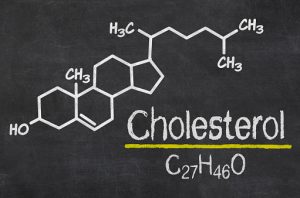 As a society, we are slowly becoming more and more health conscious, and that’s definitely a good thing. It’s very reassuring to see that, along with advancements in medical research and technology, we are raising public awareness about different conditions, including the importance of a healthy lifestyle. With so much information out there, people are becoming more cautious about what kinds of food they eat, how much they eat, and how often they eat.
As a society, we are slowly becoming more and more health conscious, and that’s definitely a good thing. It’s very reassuring to see that, along with advancements in medical research and technology, we are raising public awareness about different conditions, including the importance of a healthy lifestyle. With so much information out there, people are becoming more cautious about what kinds of food they eat, how much they eat, and how often they eat.
Of course, when we talk healthy eating and health awareness, cholesterol always come up. In fact, cholesterol has become a sort of swear word, the thought of which makes you cringe. But is cholesterol really that bad? Let’s find out.
Common myths about cholesterol
Advertisement
Myth: Cholesterol is bad, period. Not so fast. As you are probably aware, there are two types of cholesterol: the good one, and the bad one. Clearly, the bad one should be avoided, but the good one is not only beneficial, it’s actually necessary for healthy functioning. HDL cholesterol prevents deposits of fat in the arteries and escorts its evil brother LDL cholesterol out of the system. (The Italian Secret helps you gain control of your cholesterol.)
Myth: You don’t really need cholesterol. As mentioned, you do. Our body uses cholesterol to build cellular membranes and to make the all-important estrogen, testosterone, adrenal hormones, and even vitamin D. Not to mention that efficiency of your metabolism partly depends on the availability of cholesterol.
Myth: Thin people shouldn’t worry about cholesterol. It’s true that if you’re overweight, you’re more likely to run into cholesterol problems. However, thin people are not immune to cholesterol issues. This false belief that bad cholesterol only affects the overweight leads many normal-weight people to neglect their cholesterol, only to discover much later that their levels are too high.
Myth: Genes have nothing to do with your cholesterol. Yes, your genetics have a say in a lot of aspects of your life, including cholesterol levels. This is particularly true in the case of LDL cholesterol (the bad one). Oftentimes, regardless of your weight and even your lifestyle, a family history of cholesterol gets passed down from generation to generation. So if some of your close relatives have been complaining about cholesterol, check your own levels and amp up your consumption of good cholesterol. Olive oil, beans, fiber-rich fruits, nuts, and avocado are all great sources of that good cholesterol. (Why eating health foods doesn’t always help high triglycerides.)
Myth: Low levels of cholesterol translates to perfect health. Far from that. See, cholesterol is a tricky one: too much is clearly bad, but too little spells trouble too. Numerous studies have shown that cholesterol levels under 160 mg/dL may raise the risk of various health problems. Talk to your doctor about the most optimal levels for your age and physique.
Cholesterol should be handled with caution, but the more you understand how it works and what it does, the better you can go about balancing your levels and supporting your health through a wholesome diet. Being aware of your risks and keeping your levels in check will give you peace of mind and a healthy body too.
Related: Is cholesterol a lipid?
